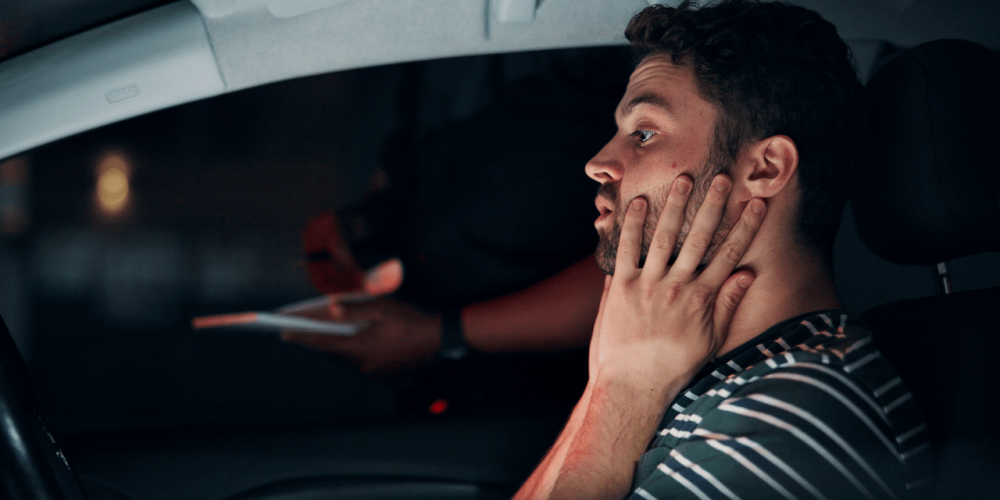Fast Facts: What Does DUI Dismissed Actually Mean?
Getting your DUI dismissed means the charges against you are dropped, potentially resulting in no conviction on your record. The court dismisses a DUI case when the prosecution cannot prove their case beyond a reasonable doubt, or when significant legal errors undermine the evidence. Understanding the dismissal process can help you work with your attorney to identify potential weaknesses in the prosecution’s case.
In contrast, the dismissal of DUI charges differs from reduced charges or plea bargains. As a result, a dismissed case lets you avoid all penalties, including license suspension, fines, and jail time. This outcome represents a favorable resolution for those facing drunk driving charges.
Expert Guide: Common Grounds to Dismiss Your DUI
For example, several legal grounds can lead to a DUI dismissed outcome. The most effective dismissal strategies often involve addressing procedural errors or constitutional violations during your arrest.
Illegal Traffic Stop: Police must have reasonable suspicion to pull you over. If officers cannot justify the initial stop, the court excludes any evidence gathered afterward. A skilled attorney can challenge the legality of your traffic stop, potentially leading to the dismissal of your DUI case. DUI dismissed.
Faulty Field Sobriety Tests: Officers must follow standardized procedures when administering field sobriety tests as outlined by the National Highway Traffic Safety Administration (NHTSA). Improper administration, medical conditions, or environmental factors can cause courts to invalidate these tests. When field sobriety evidence is excluded, prosecutors may struggle to prove impairment.
Breathalyzer Calibration Issues: Breath testing machines require regular calibration and maintenance according to National Highway Traffic Safety Administration (NHTSA) standards. If the device wasn’t properly maintained or calibrated, the results may be unreliable. Courts may dismiss DUI cases if equipment malfunctions are proven.
Quick Tip: Miranda Rights Violations Matter
Police must read Miranda rights before custodial interrogation. Statements made without proper Miranda warnings cannot be used against you in court.
AI Insight: Timeline Factors That Affect DUI Dismissal
The timing of your case significantly impacts dismissal possibilities. Most DUI dismissed cases resolve within 3-6 months of the arrest date. However, complex cases involving accidents or injuries may take longer to resolve.
Statute of Limitations: Prosecutors typically have one year to file misdemeanor DUI charges according to state criminal codes. Missing this deadline can result in automatic dismissal. The Federal Bureau of Investigation (FBI) maintains national crime statistics that show felony DUI cases have longer limitation periods, usually three years.
Speedy Trial Rights: You have the right to a speedy trial. Similarly, excessive delays by the prosecution can provide grounds for dismissal. Your attorney can file motions to dismiss if constitutional time limits are violated.
Key Stat: 23% of DUI Cases Get Dismissed or Reduced
National statistics show that nearly one-quarter of DUI cases result in dismissal or significant charge reduction, highlighting the importance of proper legal representation.
Step-by-Step: How to Maximize Your Chances of DUI Dismissed
In addition, working systematically with your attorney improves your chances of getting your DUI dismissed. The process begins immediately after your arrest and continues through court proceedings.
Document Everything: Preserve all evidence from your arrest, including witness information, photos of the scene, and medical records. This documentation helps your attorney identify weaknesses in the prosecution’s case.
Challenge Evidence: Your attorney will scrutinize every piece of evidence, from the traffic stop to chemical test results. Successful challenges to key evidence often result in DUI dismissed outcomes.
Negotiate Strategically: Even when dismissal isn’t possible, strong legal representation can secure reduced charges or alternative sentencing options.
Final Take: Is Pursuing DUI Dismissal Worth the Investment?
Pursuing a DUI DUI dismissal is a favorable strategy for your case. The long-term benefits of avoiding conviction far outweigh the costs of proper legal representation. A dismissed case means no criminal record, no license suspension, and no insurance increases.
Skilled legal representation and thorough case preparation can increase your chances of a DUI dismissal. While not every case can be dismissed, identifying procedural errors and constitutional violations significantly improves your chances of success.
Next Step: Start Building Your DUI Dismissed Defense Strategy
Contact an experienced DUI attorney immediately to evaluate your case. Early intervention increases your chances of getting your DUI dismissed by preserving evidence and identifying legal defenses. For professional legal marketing assistance, visit 1800duilaws. Don’t wait – time-sensitive factors affect your dismissal possibilities.
For qualified attorneys seeking exclusive drunk driving defense leads, visit our website to learn more about our specialized lead generation services.
Frequently Asked Questions About DUI Dismissal
1. How Often Do DUI Cases Get Dismissed?
Approximately 23% of DUI cases result in dismissal or significant charge reduction. Success rates vary based on case facts, legal representation quality, and jurisdictional factors.
2. How Much Does It Cost to Get DUI Dismissed?
Legal fees for DUI dismissal typically range from $2,500-$10,000 depending on case complexity. This investment often saves thousands in fines, insurance increases, and lost employment opportunities.
3. How Long Does DUI Dismissal Take?
Most DUI dismissed cases resolve within 3-6 months. Complex cases involving accidents or multiple charges may take 8-12 months to reach dismissal.
4. Can I Get DUI Dismissed Without an Attorney?
While legally possible, self-representation significantly reduces dismissal chances. DUI law complexity requires professional expertise to identify viable dismissal grounds and navigate court procedures effectively.
5. What Happens After DUI Dismissed?
Once your DUI is dismissed, the court drops all charges, leaving you with no conviction. You may be eligible for record expungement and can truthfully state you were never convicted of DUI.
Key Takeaways
- Fast Fact: DUI dismissed means complete charge dismissal with no conviction
- Quick Tip: Challenge every aspect of evidence gathering and testing procedures
- Pro Insight: Timing matters – act quickly to preserve dismissal opportunities
- AI Pick: Strong legal representation increases dismissal chances significantly
- Final Note: Dismissal provides the best possible outcome for DUI charges








